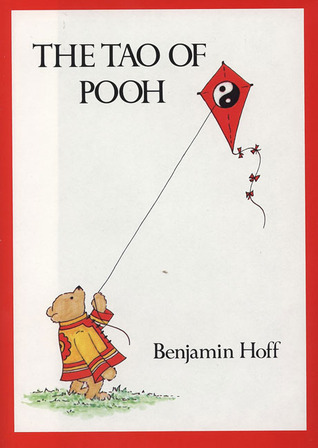Chapter 2: The How of Pooh?
byChapter 2: The How of Pooh? In this chapter, Hoff introduces Pooh to the concept of Taoism, a philosophy many people are not familiar with. Hoff believes the best way to start understanding Taoism is by exploring its roots in China. To help explain this, Hoff and Pooh imagine themselves walking through a Chinese city, where they encounter a calligraphy shop. The shopkeeper presents them with a painted scroll called “The Vinegar Tasters.” This scroll features three figures—Confucius, Buddha, and Lao-tse—each reacting to a taste of vinegar. Confucius looks sour, representing his belief that the world is flawed and people should align with traditions to bring harmony. Buddha’s expression is bitter, signifying his view that life is filled with suffering and people should detach from the world to transcend it. Lastly, Lao-tse smiles, symbolizing his belief that everything in the universe, including human life, should operate naturally, in harmony with the Tao, or “The Way of the Universe.”
The scroll’s depiction of these three figures serves to highlight how each thinker perceived the nature of life. Confucius thought life required strict rituals to restore harmony, Buddha believed detachment was necessary for liberation, and Lao-tse saw the world as naturally balanced, with human interference causing unnecessary distress. According to Lao-tse, the key to peace and happiness lies in following the Tao, which cannot be easily described in words. It is a force that underpins all things, but it is understood through experience, not explanation. While philosophers, monks, and folk practitioners have all had varying interpretations of Taoism, Hoff wants Pooh to understand the core message: it’s about appreciating and learning from the events that happen in everyday life. Taoism encourages people to embrace serenity and joy, finding humor even in life’s challenges.
Pooh, in his typical curious manner, asks Hoff what vinegar has to do with all this. Hoff explains that the vinegar in the painting symbolizes life itself. Confucius’s sour expression reflects his negative outlook on life, while Buddha’s bitterness represents the struggles and suffering inherent in human existence. Lao-tse, however, smiles because he has learned to see life for what it is—impermanent and ever-changing. He does not see life as inherently sour or bitter but instead as something to be embraced, no matter what happens. Taoists argue that the sourness and bitterness often felt in life are caused by the human mind, not life itself, which is naturally sweet. Pooh, always seeking sweetness, immediately thinks of honey and excitedly heads to the cupboard in search of a treat. This moment in the narrative gently illustrates how Taoism’s view on life, although profound, is simple and accessible—life is sweet, if only we allow ourselves to see it that way.
The teachings of Taoism, especially as presented through Lao-tse, suggest that individuals can reach peace by aligning themselves with the natural rhythms of life. The Tao does not force us to battle with what is or to lament over what could be. Rather, it invites us to accept things as they are, responding with ease and balance rather than resistance. This philosophy encourages looking at life from a fresh perspective, one that is not burdened by expectations or judgments. Taoists believe that true happiness comes from a state of harmony with oneself and the world. By recognizing the inherent sweetness of life, individuals can lead lives filled with joy, serenity, and less internal conflict. It’s a concept that might seem simple, but when applied, it holds the power to transform one’s approach to daily living.
In the context of Pooh, who is depicted as always being content, Taoism aligns perfectly with his philosophy. Pooh doesn’t overthink things; he simply enjoys life in the moment, whether it’s having breakfast or taking a walk in the woods. His natural state of being mirrors the teachings of Lao-tse. By learning to embrace the present, Pooh lives in accordance with the Tao without even realizing it. He’s an example of how one can live peacefully without striving for control or perfection. Taoism, much like Pooh’s approach to life, teaches the value of acceptance, kindness, and lightheartedness.

